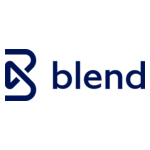CFPB proposes new laws to stamp out NSF fees for transactions declined in real time
The US Consumer Financial Protection Bureau (CFPB) has proposed a ban on banks, credit unions and certain peer-to-peer (P2P) payment companies charging fees for non-sufficient funds (NSF) on transactions declined in real time “right at the swipe, tap, or click”.

CFPB looks to end NSF fees for transactions declined in real time
NSF fees are typically incurred when a transaction is processed and then declined due to lack of funds through payments made via cheques, electronic authorisations or the Automated Clearing House (ACH). Data published by the Bureau in 2022 suggests that the average value of an NSF fee is $34.
However, as put forward by the CFPB in a statement this week, these fees “almost never” apply to transactions that are declined in real time, such as transaction declines at the point of sale, for example.
The regulator says the proposed rule would consider NSF fees applied to transactions involving the use of debit cards and ATMs as “unlawful” under the Consumer Financial Protection Act.
“Over the years, large banks and their consultants have concocted new junk fees for fake services that cost almost nothing to deliver,” says Rohit Chopra, director of the CFPB.
“Banks should be competing to provide better products at lower costs, not innovating to impose extra fees for no value.”
The CFPB signalled its move against nonsense fees being charged by banks and financial institutions back in October, when it issued guidelines on a legal provision which forbids large banks from charging customers illegal junk fees for basic services.
More recently, it proposed a similar piece of legislation against the “junk fee harvesting machine” of overdrafts that, if actioned, would bring “very large” financial institutions further into the scope of consumer protection laws by mandating the declaration of the true cost of overdraft interest rates.










































